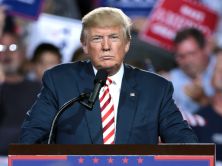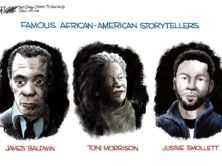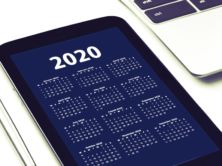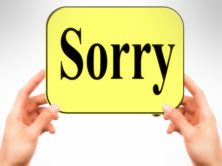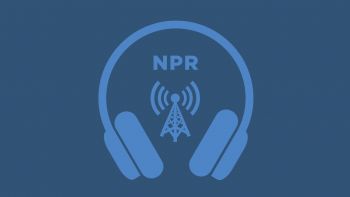
(Credit: NPR)
NPR should have waited to get more information and “pin down the broader context” before publishing its first report on the Washington D.C. protests involving the Covington High School students, the Indigenous Peoples March, Nathan Phillips and the Black Hebrew Israelites, NPR ombudsman Elizabeth Jensen argued.
That said, NPR’s “initial coverage was restrained” and reported not on the initial video that went viral on social media but on the statements released by the high school and Covington diocese in response to the video, Jensen noted. “It was appropriately cautious about what took place, using qualifiers such as ‘appears’ and ‘looks like,'” she wrote.
NPR’s first online story was headlined, “Video of Kentucky students mocking Native American man draws outcry,” and was updated when more information and videos were released showing that the Black Hebrew Israelites taunted the students. NPR deputy managing editor Jim Kane told Jensen NPR’s stories were accurate and updated “as we learned new information.”
For her part, Jensen wrote, “I’m not taking an NPR-was-better-than-others stand. I evaluate NPR’s coverage against its own standards. And Kane makes an important point that I think many critics of the news media often miss: Reporters report what they see and hear, and what they believe to be the truth based on other information they collect. As a result of that reporting, sometimes stories will become clearer over time, as more details emerge.”
In this case, she suggested NPR could have waited to publish until it had more information like fuller videos or more first-hand information.
iMediaEthics wrote to NPR to ask for its response to Jensen’s criticism. NPR spokesperson Isabel Lara pointed iMediaEthics to NPR standards editor Mark Memmott’s Jan. 28 guidance to staff, which was published on NPR’s website. It cautions, “We don’t necessarily have to report about such videos until we have more to say than that they exist.” Memmott advised staff should “report” by contacting people who had first-hand involvement in videos, ask questions, “look for holes,” and find ways to “move the story forward.”
Memmott noted:
“Keep in mind:
– One video may not tell a complete story.
– It’s very likely we won’t know how it was edited.
– We may know nothing about the motivations of the person who made the video.
– We may know nothing about the motivations of the person who posted the video (and whether it’s the person who made it).”


